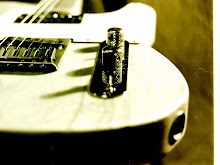Friday, January 29, 2010
Music Defined
Tuesday, January 26, 2010
Apple Mind Control
Wednesday, January 13, 2010
Retype It
One of the remembrances that particularly struck me was from Porter Bibb (gotta love these old Southern names), a teenage friend of Thompson’s who recalled how the aspiring writer would methodically retype prose selections from F. Scott Fitzgerald and Ernest Hemingway. While Bibb thought this was silly and pretentious, Thompson reasoned that it was a good way to get a sense of how it felt to write those sublime words.

Now that’s not something that I ever considered doing as a writer, but it makes sense to me. It seems like an effective exercise to get a feel for the particular nuance and flow of a master’s writing – from the writer’s perspective, as opposed to the reader’s. There is something to be said for the forced deceleration of writing out each word, rather than just reading it – seeing those words reveal themselves on the page as a result of the action of your fingers. It’s analogous to a musician tirelessly practicing the riffs of a favorite record – and, in so doing, honing skills and absorbing a style that, ultimately, are transmuted into something more personal and original.
And H.S.T. was certainly an original – in both prose and personality. That said, you can readily see the influences of Fitzgerald and Hemingway in his writing – particularly the more (ironically) lucid writing of his heyday.
Thursday, January 7, 2010
Bytes for Thought

Americans consume almost 19 hours of data a day, according a recent study by researchers at the University of California at San Diego. As for the zettabytes (a zettabyte is 1 billion trillion bytes), I’m not sure how they made that translation from time spent to bytes of data consumed, but it sounds impressive ... or alarming.
Wednesday, January 6, 2010
Bonzo Jams, A Speciality!


I wanted to include the “London Calling” video, but it’s not available for embedding, so the above will have to do.




